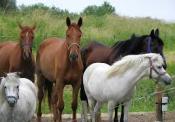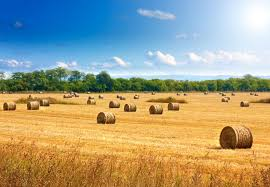What mistakes to avoid when deciding on a loan
The desire to modernize and develop production on the farm means that we need external financing. It is important, however, to make an economic calculation of the farm before choosing the loan, properly plan the repayment schedule and adjust it to the scale of production. This will allow you to function more safely on the farm even during a crisis.
Agriculture is a sector condemned to the seasonality of production and occurring random events such as the destruction of crops by hail, dreams or the occurrence of disease in a herd, in the case of animal production. Conscious management of farm finances allows you to maintain profitability and ensure continuous production development.
In the everyday functioning of a farm, it is often lacking to keep a full economic calculation.
An example here can be the purchase of agricultural equipment. It is worth answering the question whether I really need this machine on the farm, what its efficiency will be and whether it will increase production efficiency. With ill-considered purchases, it may turn out that servicing the machine costs, and if it is not well matched to the scale of production of the farm, then in the further period of time it turns into a loss. All details in farm finance management are important. At a low margin, small things decide about profitability. All the more so it is necessary to adjust the type of financing on the farm so that it would enable the survival of a worse economic situation on the market or the occurrence of fortuitous events.
When choosing a loan it is worth taking the average price level that we can get for our production. Some of the problems with repayment do not result from the fact that the farm is unprofitable, but because the loan was badly matched. An example is the financing of a long investment with a short loan. Unfortunately, there are cases where investments that turn for 15 years are financed with a working capital loan. We always choose a loan tailored to the scale and duration of the investment. In turn, when we have expenses related to production, we do not finance them with a long-term loan. Because spreading current costs over a long period of time is simply unfavorable. It should also be remembered that the planned amount to be repaid must not hinder the launch of production itself. If the investment is too expensive, you can run out of money, for example, for the purchase of animals and we will stay with the completed investment, which does not bring any revenue.
An important issue when planning a loan is its repayment schedule.
They should take place when there is income on the farm, eg, quarterly in the case of pig production, and when running only crop production, the annual installment will be the best solution. Another, apparent benefit is the extension of the loan repayment period. This happens when the farms can not actually afford a given loan installment, but when we extend the repayment period, it turns out that you can not afford such a commitment because the financing costs increase significantly.

back to News



 back to News
back to News